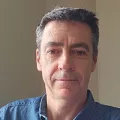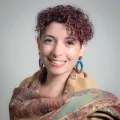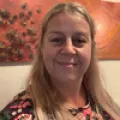Navigating cultural differences and ethical dilemmas when working with culturally diverse families
26 June 2024, 1:00 pm to 2:00 pm (AEST)
Pshko Marden, Rhett McDonald, Hala Abdelnour, Amanda Kemperman
Online
Sensitivity warning
This webinar may cover matters related to racism, and we acknowledge the long-term health impacts racism has on children and families.
Please take care while listening and if you are feeling discomfort and think you would benefit from support and would like to talk to a trained professional call Lifeline on 13 11 14, Beyond Blue on 1300 224 636, or SANE Australia on 1800 187 263.
About this webinar
Many practitioners strive to support all families in ways that are culturally appropriate and sensitive. However, when practitioners work with children and families from a different culture than their own, they may receive questions or hear experiences that differ from the norms, knowledge or expectations of their own culture. In these situations, practitioners may feel uncertain about how to navigate these cultural differences.
Ethical dilemmas can arise when practitioners’ own values or opinions around equity, fairness or parenting practices differ from those of the family they’re working with. For example, differences around the expected responsibilities appropriate for a child to take on.
Practitioners may feel uncertain about how to best support the mental health and wellbeing of the child and their family while maintaining cultural respect, humility and curiosity. Through self-reflection and improved cultural awareness, practitioners can avoid unintentionally imposing their own beliefs and expectations on families. This can reduce the risk of the child and their family feeling misunderstood or isolated from services.
This webinar will help you:
- maintain humility and curiosity when cultural differences and ethical dilemmas arise in your work
- navigate conversations with children and families from cultures that are different from your own, particularly when cultural differences arise, so that you can maintain culturally sensitive practice
- reflect on and challenge your own assumptions, judgements and biases when ethical dilemmas arise due to cultural differences.
This webinar will interest practitioners who work in the child and family sector – such as psychologists, psychotherapists, counsellors, nurses, teachers and support workers – who want to develop their confidence and cultural humility when working with culturally diverse children, parents, families and communities.
This webinar is co-produced by CFCA at AIFS and Emerging Minds in a series focusing on children’s mental health. They are working together as part of the Emerging Minds: National Workforce Centre for Child Mental Health, which is funded by the Australian Government Department of Health and Aged Care under the National Support for Child and Youth Mental Health Program.
Presenters

Pshko (Shko) Marden is a family therapist with over a decade of expertise in therapeutic context and research both in Australia and abroad, with experience working across government, non-profit organisations and the private sector. His educational background is in sociology, psychology and social work. Pshko’s therapeutic practice encompasses couple and family counselling, addressing mental health issues, navigating family and domestic violence, healing from sexual abuse and trauma, and supporting individuals experiencing grief and loss. He also works closely with clients from CALD backgrounds. His practice is guided by Narrative ideas and the Invitational approach, and deeply rooted in postmodern philosophy, feminism, queer and critical race theories. His approach centres the significance of collaboration with people with whom he works. He has developed and facilitated training programs for multidisciplinary practitioners, focusing on navigating new ways of being for men from CALD backgrounds, and collective responses to trauma.

Rhett McDonald is a Counsellor/Advocate working and living across the lands of the Boandik First Nations people in Southern Australia. He is employed by Survivors of Torture & Trauma Rehabilitation Assistance Service and works with people from a refugee and migrant background who have experienced torture or been traumatised because of persecution, violence, war or unlawful imprisonment prior to arrival in Australia. Rhett strives to work in decolonising and collaborative ways with the hope this allows the work to be as transformational as possible for everyone. Rhett has experience working in the International & Humanitarian sector with over 10 years spent aboard on assignments in the field of child health, training and development, and safety and security.

Hala Abdelnour is the CEO and Founder of the Institute of non-violence, a service that was established to support family violence response across Australia. The Institute offers advanced family violence training programs, clinical supervision and therapeutic services to clients who are using or experiencing violence. It also works to eradicate systemic racism and misogyny. She has delivered numerous Men’s Behaviour Change programs, and specialises in working with shame and trauma, intersectionality, cultural safety and group facilitation. Hala has spoken at various local, national, and international conferences and has featured on several podcasts, ABC and SBS news radio and TV.
Facilitator

Amanda Kemperman is a Social Worker with 20 years’ experience working in various areas such as domestic violence, homelessness, and community development. Currently, she works with the workforce development team translating practitioner and family knowledge and experience into programs and resources for practitioners. Amanda has a particular interest in advocating for children's voices and increasing their mental health and wellbeing. Her approach is informed by narrative therapy ideas, and she is always inspired by the ways in which people overcome and rise above the challenges in their lives. One of Amanda's joys is bringing people together and facilitating conversations that lead to collaborative change.
© GettyImages/Zuraisham Salleh